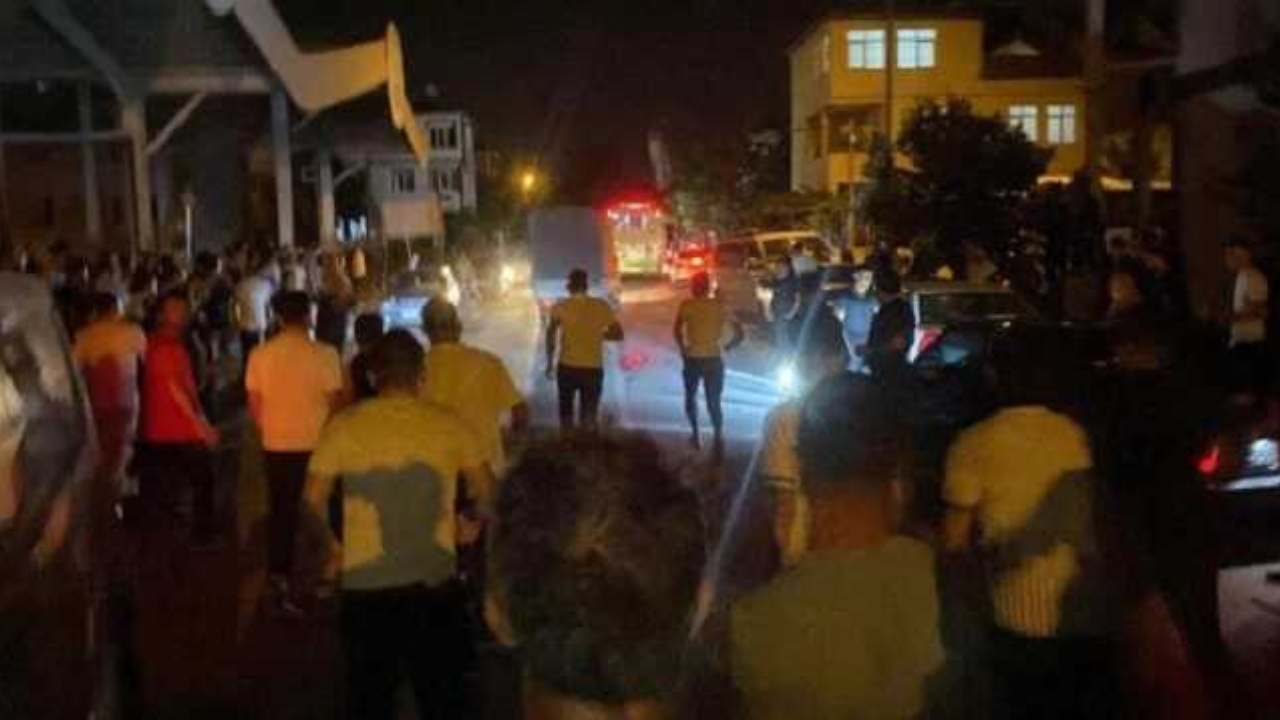
Publication
Turkey is not permitted to withdraw from the Syrian game

ARVAK Center comment, 05.07.2024(1)
On 01.07.2024 it became known that demonstrations and pogroms of Syrian refugees settled there began in the Turkish city of Kayseri. According to media reports, the riots were triggered by the rape of a 6-year-old Syrian girl by her relative. By evening, the riots had spread throughout the city, with the young men involved smashing Syrian shops, burning cars, and breaking into homes.
Syrian Arabs responded in kind, and the next day the riots spread to the northern parts of the SAR. Here, however, it was mainly the new Turkish administrative authorities and soldiers on combat duty in the occupied Syrian territories as part of “Operation on Stability Preservation” who were attacked. The most massive attacks on Turks took place in Afrin, where real street battles took place. At the same time, the geography of unrest in Turkey expanded. After Kayseri, Syrian pogroms spread to Konya, Bursa and Istanbul, as well as to the cities in Central Anatolia.
The situation in both countries has relatively stabilized by the evening of 02.07.2024, but despite the measures taken by the Turkish and Syrian authorities, the atmosphere remains extremely tense.
What happened could be considered a spontaneous outbreak caused by the accumulated dissatisfaction of ordinary Turks with the fact of the mass influx of Syrian Arabs into the country, but several circumstances point to a purely political rather than social background to what happened. In any case, it can hardly be considered a major coincidence that the riots burst out in parallel with the beginning of preparing Ankara and Damascus rapprochement process. The Turkish AL Watan publication was the first to announce about the planned contacts, according to which the closed-door talks will soon be held in Baghdad with the mediation of the Iraqi and Russian sides. According to the newspaper, Turkey and Syria will have to discuss in Baghdad “all the details in order to return relations between the two neighbors to normal, to the previous level”. The events in Kayseri happened exactly a day after Baghdad talks were announced.
In addition, at the end of June, Arabic Telegram-channels, citing their sources, reported that high-ranking representatives of the Turkish intelligence (MIT) in the town of Hawar kilis, located on the Turkish-Syrian border, told the leaders of pro-Turkish groups in Northern Syria that they “must lay down their arms and obey the authorities in Damascus”. If this news is correct, it directly confirms the information circulating in the media that R. Erdogan is going to reduce his military presence in Northern Syria, at least in those areas where there is no dominance of the Kurdish population and groups affiliated to the Kurdistan Workers’ Party (PKK).
Summarizing these data, it can be assumed that on the eve of the major Israeli–Shiite war in Lebanon, Ankara is trying to hastily distance itself from the potential arena of hostilities (Lebanon, Syria, Israel) to avoid the prospect of being drawn into the West’s global confrontation with Iran, the probability of which is increasing by the day. During the last 10 years of his rule, President R. Erdogan has repeatedly made it clear that he would not tolerate Turkey’s involvement in a war with Iran under any circumstances. The current geopolitical processes in the region suggest that a direct clash between Tehran and Ankara will become inevitable if Turkey does not finally get rid of its part in the military-political plans for the “partition of Syria”.
Consequently, it is highly likely that the events in Kayseri and the subsequent outbreaks of violence in Turkey and Syria were orchestrated by geopolitical centers that do not want Turkey to withdraw from the regional anti-Shiite game. Likely, this could be Washington and Tel Aviv, who in their time had the foresight to allow Erdogan’s Ankara to become deeply involved in the Syrian problem and increase friction with Tehran by invading Afrin and other Syrian regions and opening the borders to Arab refugees.
It is symptomatic that during the demonstrations and pogroms in Kayseri and other Turkish cities, young people shouted anti-government and anti-Erdogan slogans. This suggests that the accumulated public negativity on the Syrian issue is easily converted into a domestic political agenda, which becomes an additional problem for Erdogan and the team he leads. This is another important signal to him that Turkey’s independence, which he constantly talks about cannot be considered as such and that Ankara’s actions cannot be seen outside the context of the West’s overall strategy in the Middle East.
(1) The original (in Rus.) was posted on our website on 04.07.2024.
